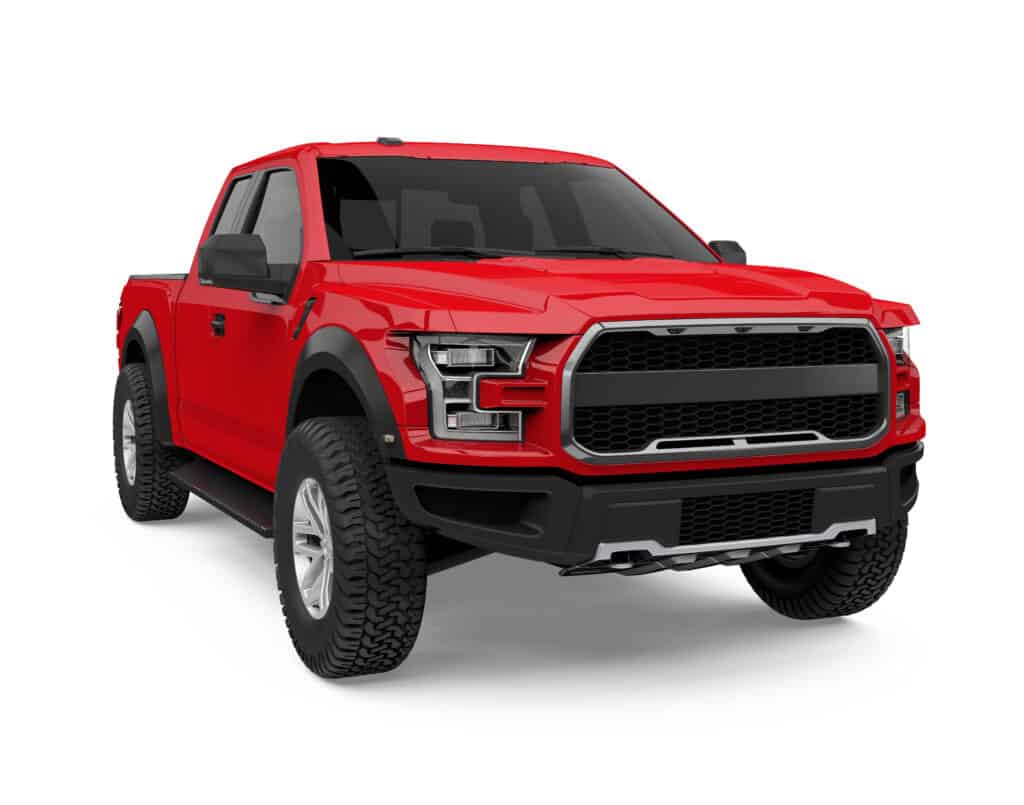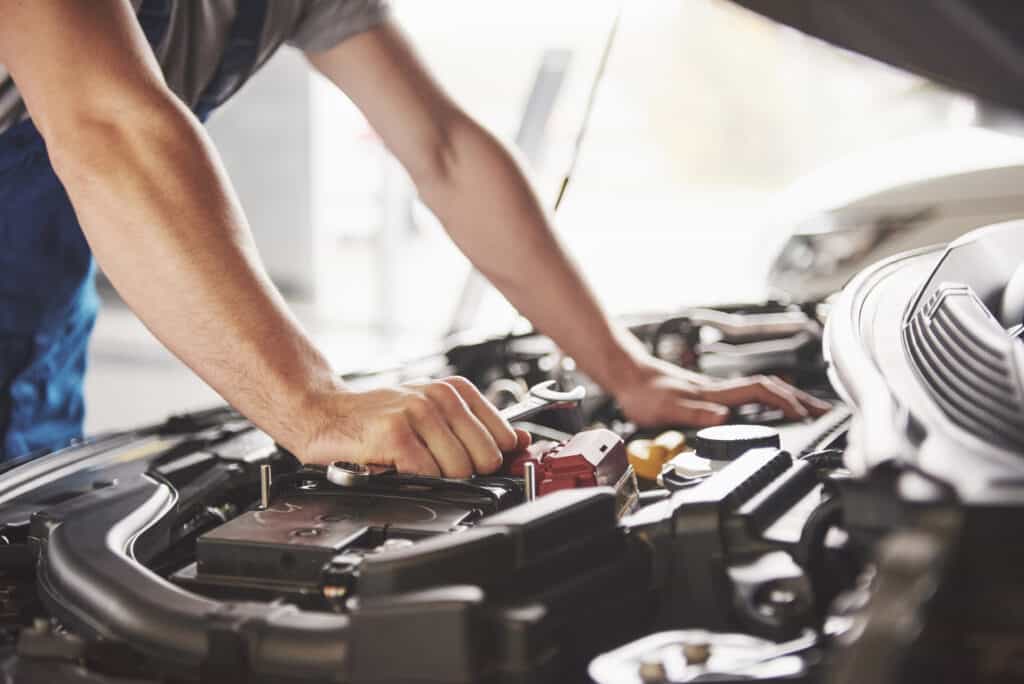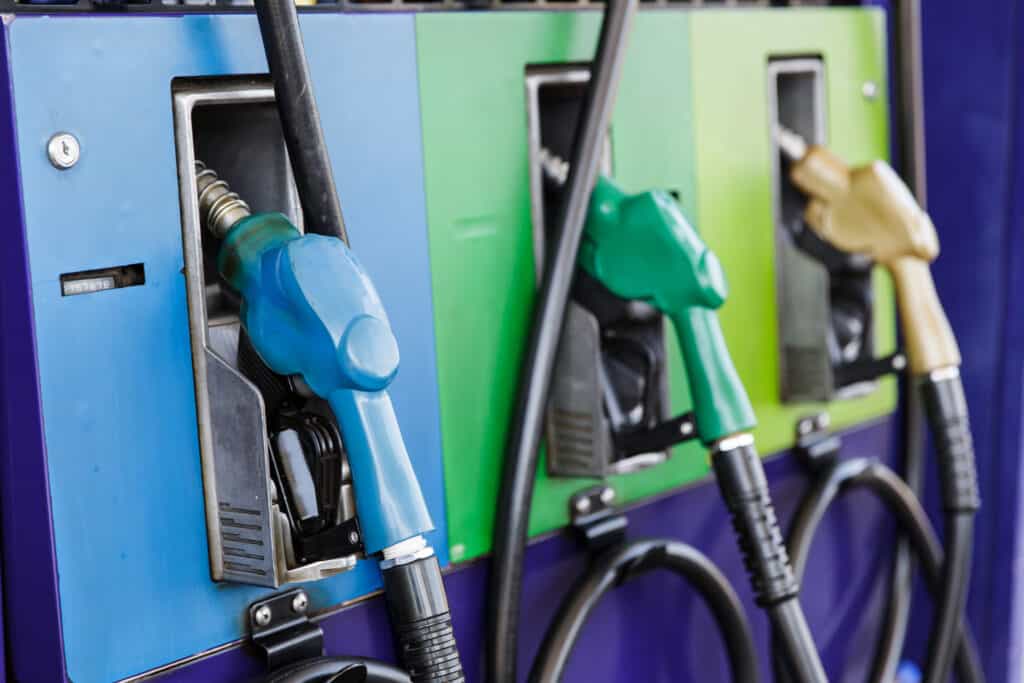What Are The Best Years For Ford Diesel Trucks?
A truck is a piece of equipment one will always have use for, and Ford trucks are extremely popular, both for fun and work. At the same time, knowing which Ford diesel truck to buy is challenging.
Before purchasing a truck, it is important to fully understand all the benefits and drawbacks each truck can offer. So what are the best years for Ford diesel trucks?

These are some of the best years for Ford diesel trucks. Years to consider include 1999 to 2000 Ford Super Duty, 2008 to 2010 Ford F-250 or Ford F-350, or the 2011 to 2016 Ford F-250 or F-350. These models are some of the highest-performing diesel-fueled trucks Ford has produced.
Why purchase a diesel engine over a gas-fueled engine? Continue reading to learn of the benefits a diesel engine can offer the owners.
What Are The Best Years For Ford Diesel Trucks?
Ford trucks are becoming increasingly more popular and their brand is becoming more icon in the truck world. Also, the engines being placed in the vehicles are also increasing and getting stronger.
To compare some of the top diesel engines used in Ford trucks today, the chart below shows some of the best years for Ford diesel trucks, and the engines used in each model.
| Ford Name | Diesel Engine Name | Review |
| 2011-2016 F-250 & F-350 | 6.7L Power Stroke V-8 with Bosch common-rail injection system | This is the most powerful and quietest diesel engine built and used in a Ford truck yet. Problems that have been shown so far include turbo failure and EGR failure once trucks hit around 70,000 miles. |
| 2008-2010 F-250 & F-350 | 6.4L Power Stroke V-8 with Siemens common-rail injection system | The good thing about this engine is the 550-600 horsepower it can offer. The bad thing is the engine has to get repairs almost every 200,000 miles, costing the owner more money and time. |
| 2003-2007 F-250 & F-350 | 6.0L Power Stroke V-8 with HEUI injection system | The price of the car is very cheap considering the engine put in, but the cost of repairs needed to fix the engine’s problem makes up for the price. This is a powerful but unreliable engine. |
| 1999-2003 F-250 & F-350 | 7.3L Power Stroke V-8 with HEUI injection system | Revamped engine to offer a quieter sound for the owners. The engine is still strong and powerful. Very reliable vehicle. |
| 1994.5-1997 F-250 & F-350 | 7.3L Power Stroke V-8 with HEUI injection system | The camshaft position sensor causes some issues with the engine. The engine has a loud and highly audible sound while running. |
There are many pros and cons to each engine, depending on how many miles are the truck and how the truck has been treated, any option could fit the needs of the owner.
As with many things, as Ford progresses, so do the engines (normally), but it is important to understand the pros and cons for each engine. Part of understanding the best years for Ford diesel trucks is knowing that some engines are more basic than others.
Want to hear more personal experiences about each diesel engine? Click the link below to be directed to a forum where people share their experiences, tips, and tricks about Ford diesel engine trucks. This is an excellent source called Ford Truck Enthusiasts
Ford Diesel Truck Towing Capacity

Towing is one of the best things about owning a truck. Towing can be used for so many occasions and situations including camping, boating, flat towing, moving, and work-related situations.
Before purchasing a truck, it is important to understand the towing capacity the truck allows and can handle. Refer to the comparison chart below for some of the best years for Ford diesel trucks and their towing capacity.
| Ford Name | Towing Capacity |
| 2011-2016 F-250 & F-350 | Both: 21,000 pounds |
| 2008-2010 F-250 & F-350 | F-250: 12,500 pounds F-350: 18,700 pounds |
| 2003-2007 F-250 & F-350 | F-250: 11,100 pounds F-350: 13,300 pounds |
| 1999-2003 F-250 & F-350 | F-250: 12,500 pounds F-350: 13,900 pounds |
| 1994.5-1997 F-250 & F-350 | Both: 10,000 pounds |
It is important to note that with an added 5th wheel, towing capacity can often be increased. One common mistake when trying to increase towing capacity is lifting the truck.
Lifting the truck and putting on larger tires can actually decrease the towing capacity the vehicle once had.
Ford Diesel Truck Payload Capacity
Understanding the payload of a vehicle really comes in handy when you have a truck with an empty bed. Payload often refers to the weight a vehicle can carry directly on it.
This is not the same thing as towing. Towing capacity is often larger than payload capacity. While most people do not necessarily have to know the payload for their car, trucks are different due to the bed.
The weight that is put in the truck bed often exceeds the weight that people normally place in a non-truck vehicle.
Understanding this weight before purchasing a truck is very important, especially if you’re planning on using the truck bed to transport large and heavy items.
Refer to the chart below to compare payload capacity in some of the best years for Ford diesel trucks.
| Ford Name | Payload Capacity |
| 2011-2016 F-250 & F-350 | Both: 7,630 pounds |
| 2008-2010 F-250 & F-350 | F-250: 3,170 pounds F-350: 5,720 pounds |
| 2003-2007 F-250 & F-350 | F-250: 3,380 pounds F-350: 7,030 pounds |
| 1999-2003 F-250 & F-350 | F-250: 3,220 pounds F-350: 7,640 pounds |
| 1994.5-1997 F-250 & F-350 | Both: 4,000 pounds |
In situations where vehicle owners need more payload capacity, it is important to keep track of all the extra weight in the vehicle.
To increase payload, there are a few tips and tricks you can do.
These include removing the unnecessary weight in the truck. Temporarily removing the back seat or getting lighter tires will also allow for more weight to be added to the truck bed.
What is The Most Reliable Ford Diesel Engine
Just as someone would want to do when purchasing any new or used vehicle, it is important to know its reliability.
Reliability not only affects how the vehicle runs within the first couple of months when it is purchased but also how well the vehicle will work in the years to come.
As previously mentioned, one of the greatest benefits of purchasing a diesel engine truck compared to a gas-fueled truck is the efficiency and reliability it can offer the owners. C
Choosing to purchase a diesel engine will already give someone an edge on reliability by having a longer lifespan and fewer maintenance repairs. With this being said, what is the most reliable Ford diesel engine truck?
When referring back to the comparison chart found under “Best Ford Diesel Engine” we see that while each engine has problems of its own, there is one that stands out among the rest. The 7.3L Power Stroke V-8 with HEUI injection system engine which is found in the 1999-2003 F-250 & F-350.
Despite the engine being more outdated than some of the newer options, it has experienced very few issues and is known for its reliability and quiet operating sound. This is one of the top candidates for the best years for Ford diesel trucks.
Benefits of Owning a Diesel Vehicle
When you’re considering purchasing a diesel engine vehicle, it is important to know the consequences, both positive and negative, that come with your purchase. Just because this is a list of the best years for Ford diesel trucks, it doesn’t mean they’re perfect.
Below is a list of some of the greatest benefits of owning a diesel vehicle compared to a gas-fueled vehicle.
Gas Mileage
One of the greatest benefits of diesel engines is the gas mileage. Diesel engines get better gas mileage, but why is that? It has to do with the fuel running the vehicle. Diesel fuel has 10 to 15% more energy in the actual fuel compared to gasoline.
This increase in energy allows diesel vehicles to go further than gas-fueled vehicles. The actual benefit and increase in gas mileage could be 20 to 35% further!
This can save a lot of money spent on fuel and a lot of time spent filling up the vehicle. Of course, the difference in gas mileage will depend on the exact make and model of the vehicle.
To learn more about how diesel and gas cars compare in gas mileage, check out Rentar: Fuel Catalyst
Longer Lifespan
Along with the great gas mileage that diesel engines offer owners, the long lifespan of the engine is a huge selling point for diesel engines.
If a diesel engine is well maintained, it can be safely driven on the road for 1,000,000 to 1,500,000 miles even with no engine work being done.
This saves money for the owner due to fewer tune-ups. There are many diesel engines that are on the road for over 30 years without getting any major work done!
Efficiency
Diesel engines have a high-efficiency rate, making them a great choice for those who need to use their vehicle for work or plan on driving long distances in the vehicle. According to Science Direct, an engine powered by diesel fuel has a 45% high-efficiency rate.
One of the biggest factors influencing how efficient the diesel engine works is how the engine uses heat and energy.
Rather than releasing the heat of the engine and the working parts of the vehicle through a tailpipe, diesel engines use the heat that’s generated and turns it into energy that can be used to fuel the vehicle.
Fewer Tune-Ups
Wasting a day taking the car into the shop for tune-ups and small maintenance work is no one’s idea of a day well spent. Diesel engines allow owners to go longer between tune-ups and trips to the auto shop.
Diesel engines do not have any distributors or spark plugs. This removes more trips to the car shop for ignition check-ups and maintenance work.
Disadvantages to Owning a Diesel Vehicle
If there are so many benefits to owning a diesel engine, why are they not as popular when buyers are considering their car choices?
The decline in diesel engines and cars has been steady and continues to drop constantly.
In the United States of America, diesel engine vehicles account for about 3% of vehicle purchases. This is an extremely low amount of vehicles. Why is that?

Cost of Diesel
For many individuals, cost is one of the biggest factors influencing a purchase decision. This could either be the cost of the item being purchased or in some cases, how much money the item will save or cost them in the future.
Despite the great gas mileage that diesel engines offer owners, the price of fuel is often higher than gas, making it not worth the price for some people.
According to a Diesel Facts Sheet produced by the Bureau of Transportation Statistics, diesel fuel prices are usually higher than gas prices.
While there have been some cases where gas is cheaper, diesel is often more expensive. When considering a cheap vehicle with a low running cost, diesel engines may not be the best bet.
Regular Maintenance
Despite the amazing benefits of fewer tune-ups and the longer lifespan of the engine, vehicles with diesel engines still do have to go in for regular maintenance checks and fixes.
The good thing is, this cannot truly be compared to gas-fueled vehicles because they have to regularly receive an oil change, ensure their airbags are up to date, and complete any other regular maintenance.
No Increase in Performance
While the diesel engine’s efficiency is higher than a gas-fueled engine, there is no increase in the performance of the actual vehicle or how it runs.
Similar to the previous point “Regular Maintenance”, this is also something that does not really compare to gas-fueled vehicles because there is no noticeable decrease or increase in performance.
Cost of Purchase and Repairs
Unfortunately, diesel engines cost more than gas-fueled engines. To replace a gas-fueled engine, the owner would be looking at $3,000 to $4,000, depending on the exact engine. Owners shouldn’t expect anything less than 5,500 dollars when replacing a diesel engine.
Diesel engine replacements can cost up to 11,000 dollars, depending on the exact engine being replaced.
Similar to “Cost of Diesel”, many people decide on a purchase based on the price of the item and the money being spent in the future to fix or use the item. The vehicle’s overall cost and the engine repairs deter many people from purchasing a diesel engine.
